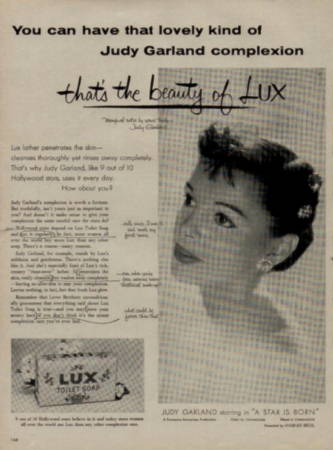
I am continually amazed by the reach and subtle power of propagandistic discourse. It's even more fun to watch how the present state of consumer capitalism has rendered propaganda as a standardized formula, and a means by which such ideologies enter into daily life. Fascist Italy was hindered by the need for monolithic depictions of the leader. In the modern culture of consumption, the god-head of fascism is replaced by the negation of the self among citizens through advertising. Instead of wall-sized murals of Hitler or Mussolini, a carapace of the citizen-subject is rendered in order to be destroyed by inadequacy in relation to the product offered.
This process can have funny consequences. A 1948 Lux Radio Theatre adaptation of Hitchcock's Spellbound was introduced by show producer William Keighley:
"While most people think of motion pictures as typically American, it is nevertheless true that our neighbours overseas have contributed much to their development: new ideas, new technical approaches, and new stars."
"I was talking to [European actress Alida] Valli... and one of the things that impressed her on arriving in this country was the abundance of everything. From motorcars, to good soap flakes. And to millions of people, good soap flakes mean Lux. Which reminds me again how much we take our luxuries for granted. While in many other countries, housewives must rely on any kind of soap that they can get, here they are always sure of the safe and easy care of precious washable fabrics by saying Lux."
No wonder America developed an isolated sense of itself. An insular approach to identity is always-already fostered throughout mass culture. Perhaps this inward gaze was fostered as a reaction to the gesture beyond oneself which lies at the heart of many of the communications technologies that were developed over the course of the 20th century. God only knows what will emerge as computer technologies continue to mature.
No comments:
Post a Comment